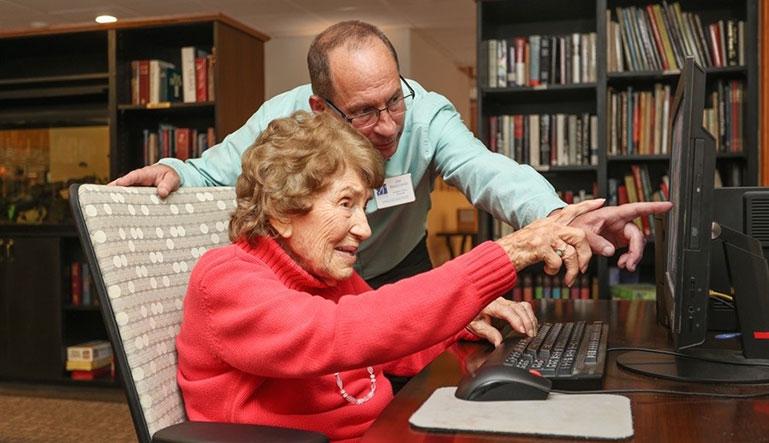So much of our lives is spent online. The convenience of online shopping has made it a ubiquitous part of many seniors’ lives for food, clothing, medication, and more. With that convenience, however, comes the lurking dangers of online scams that can prey on unsuspecting people. According to the FBI’s Internet Crime Complaint Center, there were over 88,000 internet crime victims over the age of 60 in 2022 with an estimated $3.1 billion lost—an 84 percent increase from the previous year.
As internet shopping scams targeting seniors continue to increase it’s more important than ever to learn how to stay safe online. By following these strategies, you can protect your hard-earned money while enjoying the benefits of online shopping without becoming a victim.
In this article:
- 5 ways seniors can avoid online shopping scams
- Order from stores you know and trust online
- Beware of the links in emails
- Check the site’s security
- Use a credit card, not a debit card
- Monitor monthly statements
5 Safety Tips for Seniors Who Shop Online
1. Order Online From Retailers You Know and Trust
While many online retailers are safe and legitimate, others aren’t. Knowing which are safe and which to avoid can be challenging. One suggestion is to online shop directly from retailers that you enjoy shopping at in person. In addition to helping protect your identity and privacy, this approach also ensures the quality of the products you are ordering. Be aware of offers that might seem too good to be true. While many big retailers can offer great sales, be conscious of what you’re buying and where you’re buying it from.
2. Beware of the Links in Emails
Scammers have become quite sophisticated. Their emails can even look identical to those from popular stores and financial institutions. It’s often impossible to tell which are legitimate and which aren’t.
Beware of emails encouraging you to click on a link. It might ask you to update your account or say it’s time to change your password. If you click on the link, you are often taken to a website designed to steal your data and financial information. Instead, go directly to the company’s website or call them to validate the authenticity of any concerning messages you receive.
3. Check the Site’s Security
Another tip is to make sure a site’s web address begins with a tiny icon of a lock and includes “https.” That combination signals a site is secure. If you don’t see that lock or the “s” after “http,” the webpage may not be safe. Entering credit card information on a site like this can put you at risk for fraud or theft.
4. Use a Credit Card, Not a Debit Card
If you shop online using a debit card instead of a credit card, a thief can drain your checking or savings account before you realize anything is wrong. If the vendor you buy from isn’t legitimate, the credit card company will be able to protect you. While your bank probably can too, it usually takes longer. Money in your accounts might not be available while the matter is under investigation.
5. Monitor Monthly Statements
Lastly, review account charges and debits every month. The more often you review your accounts the better. Make sure the charges listed are for purchases you made and that you are credited for any returns.
What To Do if You Get Scammed Online Shopping
If you or someone you know becomes a victim of an online scam there are resources available. The Federal Trade Commission offers tips like reporting the crime to your bank, having the U.S. post office intercept a postal package, report an identity theft, and more.
At Five Star Senior Living, residents are protected with secure communities, skilled team members, and engaging programs that offer assistance on how to recognize online scams. Find a community near you today.
Contact Us Today
"*" indicates required fields

